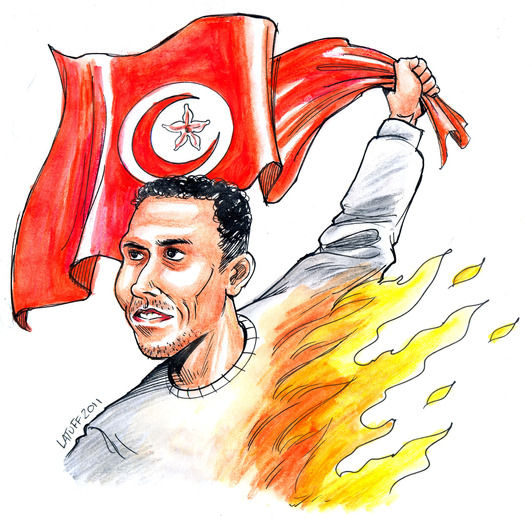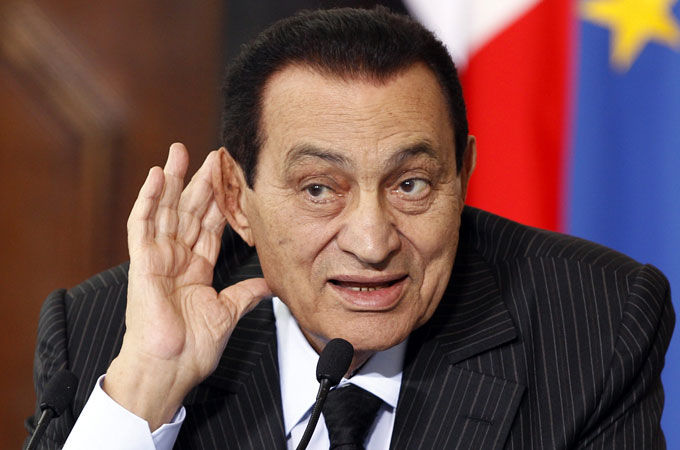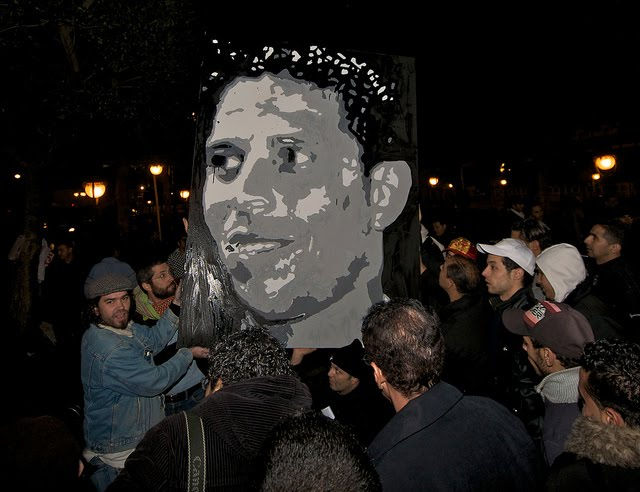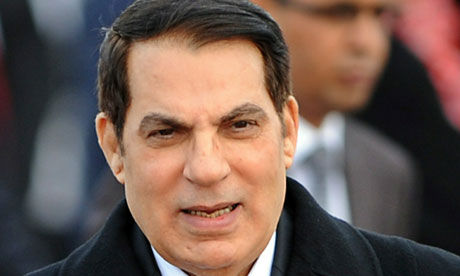Social
Impacting Globalization
Media
I'm a title. Click here to edit me
When Mohamed Bouazizi made the ultimate sacrifice by setting himself on fire outside a municipal building in Tunisia on December 17, 2010, people took pictures and even shot video. Soon, these pieces of media were inundating popular social media websites such as Facebook, Twitter and YouTube. By doing this, people essentially put a face on the political oppression and economic hardships the people of the Middle East faced. Social media aided in the ignition of protests in Tunisia by allowing people across the country to learn about Bouazizi's immolation in an instant. Inspired by this graphic incident, people took to the streets to call for more political freedom and a better life for the poor/middle class. This represents the local impact that social media has on globalization since people used global social media companies to initiate protests.
Fast forward a couple months, and protests were now raging in Egypt, Libya, Algeria, Morocco, Syria and Yemen. Social media transcends geographic borders by allowing people from various countries to share their ideas right from their homes. Bloggers and activists from different countries also shared information ranging from ideas to proxies to evade government restrictions of the internet. It was never so easy for people from different countries to partake in such mass communication through such as efficient manner. Social media also enabled activists to communicate with Western news agencies such as NBC, CNN and BBC when international news agencies were barred from accessing these countries. Essentially, these news agencies relied on these activists and bloggers for authentic reports from on the ground. I remember watching CNN during the Arab Spring and on every program, they were showing YouTube videos and tweets from protesters on the ground. Activists even gave interviews via Skype. Soon, most Americans were learning about the social, economic and political problems of the Middle East. The Arab Spring became a worldwide phenomenon because social media allowed people to easily share news and developments with anyone in the world.

This Daily Politics video discusses the role of social media by both sides during the Arab Spring.
"Social media played a central role in shaping political debates in the Arab Spring. A spike in online revolutionary conversations often preceded major events on the ground. Social media helped spread democratic ideas across international borders."- 2011 Project on Information Technology & Political Islam report.
























